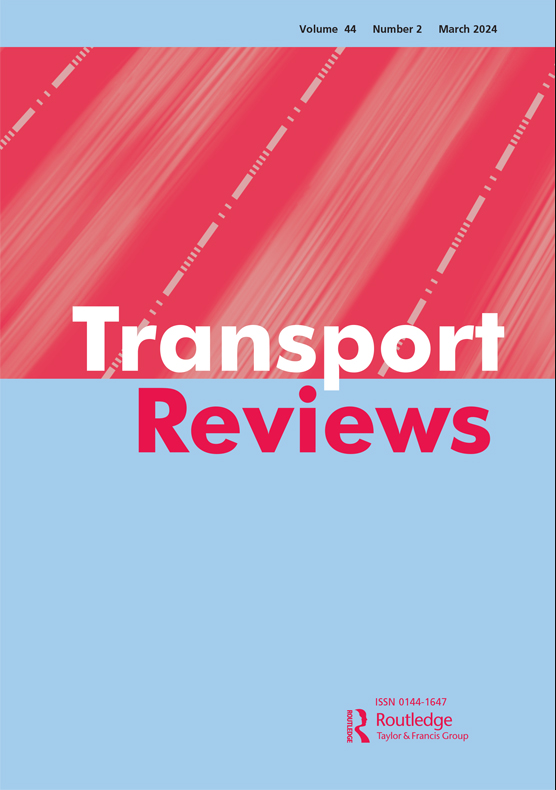Unpacking mobility cultures: a review of conceptual definitions and empirical approaches
IF 9.9
1区 工程技术
Q1 TRANSPORTATION
引用次数: 0
Abstract
While “Mobility Culture” is an emerging concept in transport science and policy, it is often defined and applied in different ways. We conducted a systematic literature review focusing on the definitions of the concept and how it has been approached empirically. We found that definitions of Mobility Culture are heterogeneous, often indirect and implicit, or missing entirely. We assigned papers to five definition groups based on similarity: (1) Objective and subjective characteristics, (2) subjective-only characteristics, (3) social groups and communities, (4) normative-sustainable notions of future transportation, and (5) papers lacking definitions. Among empirical papers, we identified three broader approaches: Comparative (e.g. city typologies or pre-and-post relocation studies), single-culture (e.g. place-specific mode choice, local discourses) and intervention studies. We discuss the suitability of these approaches for different research goals and how they relate to the definition groups. Overall, we observe a lack of conceptual clarity in the Mobility Culture discourse, which is also reflected in the frequent mismatch of definitions and empirical operationalisations. We recommend that future Mobility Culture definitions consistently acknowledge the phenomenon’s (i) complexity and multidimensionality, (ii) the relational character among its dimensions and attributes, and (iii) its sensibility for social and geographical differences.
拆解流动文化:对概念定义和实证方法的回顾
虽然“流动文化”是交通科学和政策中的一个新兴概念,但它通常以不同的方式定义和应用。我们进行了系统的文献综述,重点是概念的定义以及它是如何被经验地处理的。我们发现流动文化的定义是异质的,通常是间接和隐含的,或者完全缺失。我们根据相似性将论文分为五个定义组:(1)客观和主观特征;(2)主观特征;(3)社会群体和社区;(4)未来交通的规范可持续概念;(5)缺乏定义的论文。在实证论文中,我们确定了三种更广泛的方法:比较研究(如城市类型学或搬迁前后研究)、单一文化研究(如特定地点模式选择、当地话语)和干预研究。我们讨论了这些方法对不同研究目标的适用性,以及它们与定义组的关系。总体而言,我们观察到流动性文化话语缺乏概念清晰度,这也反映在定义和经验操作的频繁不匹配上。我们建议未来的流动性文化定义应始终承认这一现象的(1)复杂性和多维性,(2)其维度和属性之间的关系特征,以及(3)其对社会和地理差异的敏感性。
本文章由计算机程序翻译,如有差异,请以英文原文为准。
求助全文
约1分钟内获得全文
求助全文
来源期刊

Transport Reviews
TRANSPORTATION-
CiteScore
17.70
自引率
1.00%
发文量
32
期刊介绍:
Transport Reviews is an international journal that comprehensively covers all aspects of transportation. It offers authoritative and current research-based reviews on transportation-related topics, catering to a knowledgeable audience while also being accessible to a wide readership.
Encouraging submissions from diverse disciplinary perspectives such as economics and engineering, as well as various subject areas like social issues and the environment, Transport Reviews welcomes contributions employing different methodological approaches, including modeling, qualitative methods, or mixed-methods. The reviews typically introduce new methodologies, analyses, innovative viewpoints, and original data, although they are not limited to research-based content.
 求助内容:
求助内容: 应助结果提醒方式:
应助结果提醒方式:


